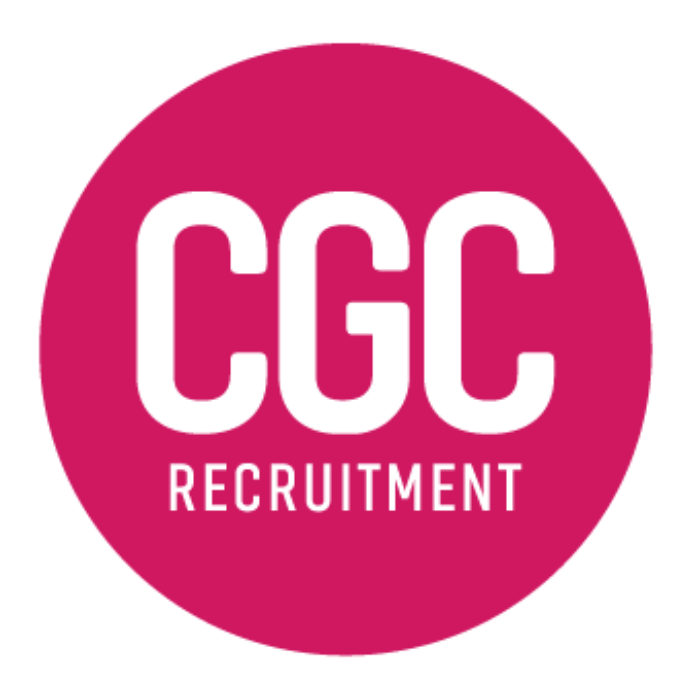Taking charge of your career
It’s your career, your life and - your responsibility. The fact that you're reading this shows you are now taking steps to take charge. These hints and tips will help you as you take your next career step.
It’s no secret the world has changed and that the days of having one job, or even one career, are long gone. Careers now are more fluid, adaptive and require you to have more flexibility. The ‘gig economy’ is changing the way many industries work, while advances in technology come thick and fast, disrupting markets, businesses and roles.
To stay relevant, you need to keep up with the latest technology, focus on skills that can’t be automated, and at times re-invent yourself. Continue upskilling and learning to give yourself an edge. Participate in industry or trade social media groups, follow industry thought-leaders, subscribe to professional online newsletters. or take an online or offline course…there are multiple ways to keep in touch with what’s happening and stay relevant and informed.
1. Raise your profile
LinkedIn is the go-to resource as the first step for any recruiter to identify talent or check candidates’ details.

Make sure your profile is professional, up to date and relevant to the roles that you are applying for. There are many online resources which will guide you on taking a good picture and writing a strong profile in good professional language. Take some time to check them out and make your profile stand out – your next career move may depend on it.
Social media is a double-edged sword. You can build your profile and professional contacts steadily by creating or sharing posts, commenting on views and joining industry groups. Remember to avoid outspoken rants, inappropriate language and behaviour which can come back to bite you. It is usual these days for a recruiter or HR personnel to check your social media profiles before or after an interview.
CVs - it should go without saying that your CV must be up to date and relevant - tailored to highlight your suitability, skills and experience for the roles you are interested in. Unfortunately, we see many CVs every day that aren’t optimised for the position, don’t stand out, or are littered with errors and spelling mistakes. A poor first impression can derail an opportunity before you are even considered. Invest the time or seek professional help – our consultants are happy to help.
References - make sure you’ve let your referee know that they may receive a call and understand some of the key information about the role, so they can give relevant endorsement and examples of your work and suitability in their reference. Like you, they need to be honest about your abilities and experience , fibs or exaggerations will be found out sooner or later.

2. How to prepare for an interview

Preparation is the key to a successful interview and one thing you can control. Prepare physically and mentally. Sleep well the night before and set your alarm. Two alarms are even better. Put the effort in upfront and not only will it help you relax, but your preparation and professionalism will be clear to the interviewer.
Make sure you’ve got a thorough understanding of the role and the company. Carefully read the job description to ensure you understand what’s required and where there is a good match with your skills and experience. Be prepared to discuss what your goals are, and what have been your successes, and examples of relevant previous projects.
Research the company. There’s a huge range of information readily available, mostly just a few clicks away online, so there’s no excuse for poor preparation. Familiarise yourself with the company’s website, including media releases or news, its management team, financial performance (eg. annual report or external market commentary), latest projects or contracts won and awards. Do a Google search for company coverage in industry news/newsletters and forums.
What are you going to wear? What’s the organisation’s dress code? Generally being over-dressed is better than under-dressed…you can always take a jacket or tie off if you feel that’s better.. Prepare your interview outfit the previous night.. You don’t need to add stress by running around at the last minute looking for a particular shirt or blouse only to find it in the wash or not ironed.

3. Getting there
First impressions matter. There are few things worse than arriving late for an interview flustered, out of breath, sweaty or dishevelled and blurting out excuses. It’s not a good look. Sure, some things are unavoidable such as family or health emergencies, serious traffic incidents or public transport delays, but ensure you arrive in good time.
Plan how you’re going to get there. Check out Google Maps, driving or commuting time, where to park, public transport timetables and which stop to get off. How long will it take to walk from the car park or stop?. Do you know where the building’s main entrance is, what floor to go to and the name of the person you’re seeing?

Plan your timing aiming to arrive early, giving yourself time to take a calming breath, refresh your memory on key points and think about the interview. If you do encounter an unavoidable situation that’s going to delay you or requires a reschedule, call the interviewer as soon as you can- it’s simply common courtesy.
4. Switch on, turn off
It’s basic etiquette to turn off or mute your phone before you go into the interview. But you’d be surprised how many people forget, only to feel embarrassed or be distracted by a message or call which interrupts the flow of the interview. Turn it off and fully concentrate on your interview.
5. Frequently Asked Interview Questions

Every interview is unique, but there are several common questions that may be asked. Every good candidate should be prepared to answer some these:
The icebreaker…” tell me a bit about yourself”.
This is a great opportunity to get the interview started on a positive note and separate you from other candidates. Have a response prepared and be natural. Resist the temptation to give your life story. Keep it short and succinct- who you are, your relevant qualifications, skills or strengths that are key to the role you’re applying for.
Why do you want this role?
This gives you a chance to talk about some of your strengths and demonstrate some knowledge about the role and the company. The interviewer is looking for some preparation and knowledge of the company and will quickly identify a candidate that hasn’t bothered to do any research.
What do you know about the company looking to recruit you?
As above, this is a common question to see whether you’ve gone beyond a quick review of the company website while waiting in reception for the interview! Showing you’ve done your homework demonstrates you are serious about the role.
What are your goals for the future?
This question or a variation of it gives you the chance to discuss your purpose and ambition. Career planning is well-regarded, so think about how this new role would help with your future ambitions.
Where do you want to be in 5 years?
Like future goals, it's about planning and ambition. Be honest in answering but be realistic – running Apple or Microsoft is beyond most of us.
What are your strengths and weaknesses?
How self-aware are you about these? What are you particularly good at and how would this fit the role requirements? And your weaknesses? Everyone has areas they can improve on, and self-awareness and a willingness to recognise where you can improve are well-regarded.
What do enjoy doing in your spare time?
Having a life outside work and other interests is a good thing – though if eating pizzas while playing video games or watching a Netflix marathon all weekend is your idea of heaven, you might want to keep that to yourself. Are you in groups or clubs, team sports, or prefer solo exercise and activities? Do you have an enquiring mind and like learning new things?
Why should they hire you?
Again, the interviewer is looking for self-awareness. What are you very good at? What experience or personal attributes make you the ideal candidate for this role? It’s a good way to pitch yourself matching your key strengths to the role. Sell yourself in your answer and remember to be honest but avoid being boastful.
Can you give me examples of a successful project you’ve been involved in?
Be prepared with at least one to two examples to share. The interviewer will be trying to understand how you work in a team and are prepared to take responsibility, where did you add value? Did you go above and beyond? Again, be honest but not boastful. You never know who knows who and claiming success for a colleague’s work can unravel your credibility very quickly.
What did you like /dislike about your current or last role?
This question helps the interviewer understand the areas which you enjoy, and which parts of the role aren’t well suited to you. Try to keep it about the work rather than colleagues or managers, focus more on what you enjoyed and that you believe will be part of the new role.
Why do you want to leave? /did you leave your last role?
Try to stay positive and focus on fresh opportunities, more responsibility, more challenges, or a different experience. Be honest but avoid badmouthing the firm or other employees.
What are the opportunities for progression, training and development?
This signals your ambition and that you are open to learning. A commitment to training and career development also tells you that the company values its employees.
How and when to address remuneration?
This can be tricky, particularly if you’re not going through a recruiter. You don’t want to come over as only interested in salary rather than the job opportunity, but everyone needs to eat and have a roof over their heads. Raising the remuneration can depend on where you found the role. You should broadly know your market value so contact your CGC Consultant* for your market appraisal - you don’t want to waste your time on a role that pays much less than you were on previously. Unless it’s an amazing career step or you’re moving into a new area and need to ‘step back to move forward’.
What sort of salary is being offered?
Is a relaxed way to start the conversation but unless it’s raised by the interviewer, it’s often best left to round two of the process.
And the question that often stumps candidates…” Do you have anything you want to ask?”
It’s always good to ask a couple of questions at the end to show your interest or clarify something that’s been said. Remember while they’re interviewing you, you are also interviewing them- it's your career and you’re taking charge of it.
An open-ended question like what’s the company culture like? or why do you like this company? can help build rapport and give you insights that may not be on the website or in the job description. Similarly, why did the vacancy arise? or is there something missing from the last employee that you are hoping to see from the next person in this role? What were the main challenges the predecessor faced? – answers to these questions can offer additional useful information.
What are the next steps?
They should tell you at the end of the interview, but make sure you know. You need to understand the process, so you know how and when to follow up.
Follow Up
A simple email to thank the interviewer for their time, sent promptly after the interview, is good practice. If the date for informing candidates of the next steps has passed, a polite and friendly follow-up is ok and can be worthwhile. While you’ve been waiting, things may have changed, the division or company may be overloaded, or a key person may be unavailable. So asking for an update is fine, remembering to look keen rather than desperate!
We hope these interview tips have helped If you want to know more, contact us on (02) 9247 7251 or [email protected].









